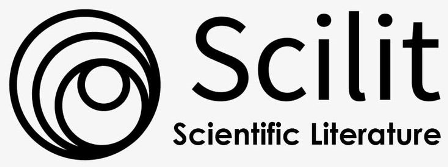URBAN CONTEXT ANALYSIS ACCORDING TO THE CONCEPT OF SPENCER'S BIOLOGICAL THEORY USING GIS: BALAD CITY CASE STUDY
DOI:
https://doi.org/10.31272/jeasd.28.2.4Keywords:
Balad city , biological theory, city context , Herbert Spencer's theory, spatial analysisAbstract
Concepts of evolution theory (by Herbert Spencer) were analyzed using a Geographic Information System according to living notions in the context of an urban city. The idea of the theory was applied to the society within the context of Balad city to find out whether the concepts of contrast, integration, specialization, and exclusivity on which the theory is based have an impact on the services in the city and an effect on the structure of the social elements and the stages of its development. The research problem centered on the shortcomings of the theory in predicting and explaining the morphological and functional structure of the city, while the main objective is to analyze the concepts of biological theory according to the requirements of the context of the study area. The analysis results of the living context notions present in the city were compared with the urban housing standards using GIS to determine the extent to which the context conforms to the concept of Spencer's theory. The research found the inability of the biological side of the theory to explain the population concentration in residential neighborhoods, as well as the lack of reliance on the concepts of contrast and integration in predicting the reasons for the growth and expansion of the city, and that the city neighborhoods showed a variance in their services without showing integration and exclusivity in these services, that is, the lack of integration organic between the biological parts of the city.
References
M. ibn A. Muqaddasī and B. Anthony. Collins, "The best divisions for knowledge of the regions : a translation of Ahsan al-taqasim fi maʻrifat al-aqalim,” p. 460, 1994, Accessed: Oct. 01, 2022. [Online]. Available: https://www.goodreads.com/work/best_book/218362-the-best-divisions-for-knowledge-of-the-regions-a-translation-of-ahsan
S. I. S. Al-Jubouri, “The Theoretical scheme of the Social Theory: Analytical study,” Adab AL Rafidayn, vol. 50, no. 81, 2020, Accessed: Oct. 01, 2022. [Online]. Available: https://www.iasj.net/iasj/article/202702
B. A. Harry, “Herbert Spencer | Biography, Social Darwinism, Survival of the Fittest, Books, & Facts | Britannica,” Encyclopaedia Britannica, 2022. https://www.britannica.com/biography/Herbert-Spencer (accessed Oct. 01, 2022).
H. R. Wagner, “Types of Sociological Theory: Toward a System of Classification,” Am Sociol Rev, vol. 28, no. 5, p. 735, Oct. 1963, https://doi.org/10.2307/2089911.
J. Stepnisky, “Contemporary Social Theory,” The Wiley Blackwell Companion to Sociology, pp. 21–38, Oct. 2019, https://doi.org/10.1002/9781119429333.CH2.
O. I. Alo, “Contemporary convergence in sociological theories the relevance of the African thought system in theory formation,” International Journal of Sociology and Social Policy, vol. 4, no. 2, pp. 60–76, Feb. 1984, https://doi.org/10.1108/EB012968/FULL/PDF.
K. Borchard, “Conceptual Writing to Explore Meaning-Making in Social Theory: Remixing Herbert Spencer and Karl Marx,” Knowledge Cultures, vol. 10, no. 2, pp. 68–94, 2022, https://doi.org/10.22381/kc10220224.
P. Altmann, “The last Spencerianos. Towards a canon of the first Ecuadorian sociology,” Iconos, no. 71, pp. 103–120, Sep. 2021, https://doi.org/10.17141/iconos.71.2021.4803.
P. L. Ricci, “‘Who is this Renaissance? Where did he come from?’: Englishness and the Search for an American National Style, 1850-1900,” Architectural History, vol. 64, pp. 45–68, 2021, https://doi.org/10.1017/arh.2021.3.
L. Niro, "Social evolution, progress and teleology in Spencer's synthetic philosophy and Freudian psychoanalysis,” American Imago, vol. 78, no. 1, pp. 105–130, 2021, https://doi.org/10.1353/aim.2021.0003.
J. Bílý, “Conception of law in works of earlier founders of modern social thought,” Journal on European History of Law, vol. 12, no. 1, pp. 178–184, 2021.
D. Gatti and L. B. dos Santos, “Ciência, evolução e educação em Herbert Spencer,” Estudos Avancados, vol. 36, no. 105, pp. 305–320, 2022, https://doi.org/10.1590/s0103-4014.2022.36105.018.
M. Beetz, “Das unliebsame System. Herbert Spencers Werk als Prototyp einer Universaltheorie / The Disagreeable System. Herbert Spencer’s Work as a Prototype of Universal Theory,” Z Soziol, vol. 39, no. 1, pp. 22–37, Feb. 2010, https://doi.org/10.1515/ZFSOZ-2010-0102.
J. Prystash, “Sexual futures: Feminism and speculative fiction in the Fin de Siècle,” Science-Fiction Studies, vol. 41, no. 2, pp. 341–363, Jul. 2014, https://doi.org/10.5621/sciefictstud.41.2.0341.
A. Dorschel, “A functional explanation of normative prescriptive-evaluative judgments and the concept of ‘evolutionary ethics,’” Hist Philos Life Sci, vol. 14, no. 2, pp. 309–328, 1992.
A. M. McKinnon, "Energy and society: Herbert Spencer's 'energetic sociology' of social evolution and beyond," Criminology and Criminal Justice, vol. 10, no. 4, pp. 439–455, Nov. 2010.
J. F. Araujo, “De rerum natura: Origins and uses of the biologicals metaphors in classic archive theory,” Investigacion Bibliotecologica, vol. 34, no. 84, pp. 185–202, 2020, https://doi.org/10.22201/iibi.24488321xe.2020.84.58171.
F. Allhoff, “Evolutionary ethics from Darwin to Moore.,” Hist Philos Life Sci, vol. 25, no. 1, pp. 51–79, 2003, https://doi.org/10.1080/03919710312331272945.
G. Marcaggi and F. Guénolé, “‘It occurred to me that the insane ought to be studied’: Charles Darwin’s work and mental medicine,” Evolution Psychiatrique, vol. 83, no. 4, pp. 579–598, Oct. 2018, https://doi.org/10.1016/j.evopsy.2018.02.005.
M. Beetz, “Das unliebsame system. Herbert Spencer werk als prototyp einer Universaltheorie,” Z Soziol, vol. 39, no. 1, pp. 22–37, Feb. 2010.
S. J. Peart and D. M. Levy, “From cardinal to ordinal utility theory: Darwin and differential capacity for happiness,” Am J Econ Sociol, vol. 64, no. 3, pp. 851–879, Jul. 2005, https://doi.org/10.1111/j.1536-7150.2005.00394.x.
M. Chirimuuta, “Synthesis of contraries: Hughlings Jackson on sensory-motor representation in the brain," Studies in History and Philosophy of Science Part C : Studies in History and Philosophy of Biological and Biomedical Sciences, vol. 75, pp. 34–44, Jun. 2019, https://doi.org/10.1016/j.shpsc.2019.01.007.
W. F. Bynum, “Charles Lyell’s Antiquity of Man and its critics,” J Hist Biol, vol. 17, no. 2, pp. 153–187, Jun. 1984, https://doi.org/10.1007/BF00143731.
A. M. McKinnon, "Energy and society: Herbert Spencer's 'energetic sociology' of social evolution and beyond," Journal of Classical Sociology, vol. 10, no. 4, pp. 439–455, Nov. 2010, https://doi.org/10.1177/1468795X10385184.
P. A. Corning and E. Szathmáry, “Synergistic selection: A Darwinian frame for the evolution of complexity,” J Theor Biol, vol. 371, pp. 45–58, Apr. 2015, https://doi.org/10.1016/j.jtbi.2015.02.002.
M. Francis, "Herbert Spencer and the Invention of modern life," Herbert Spencer and the Invention of Modern Life, pp. 1–434, Jan. 2010, https://doi.org/10.1017/UPO9781844653898.
P. Elliott, “Erasmus Darwin, Herbert Spencer, and the origins of the evolutionary worldview in British provincial scientific culture, 1770-1850.,” Isis, vol. 94, no. 1, pp. 1–29, 2003, https://doi.org/10.1086/376097.
H. Winlow, “Darwinism (and Social Darwinism),” International Encyclopedia of Human Geography, pp. 4–11, Jan. 2009, https://doi.org/10.1016/B978-008044910-4.00675-1.
S. Turner, “The Cognitive Dimension,” Handbooks of Sociology and Social Research, pp. 693–725, 2021, https://doi.org/10.1007/978-3-030-78205-4_32.
B. Lightman, "The 'History' of Victorian Scientific Naturalism: Huxley, Spencer and the 'End' of natural history," Studies in History and Philosophy of Science Part C : Studies in History and Philosophy of Biological and Biomedical Sciences, vol. 58, pp. 17–23, Aug. 2016, https://doi.org/10.1016/j.shpsc.2015.12.004.
A. D. Abed, “Improve the self-purification of the Shatt al-Arab rivers system using simulation models”, 2020, https://doi.org/10.1080/15715124.2020.1809436.
Murenje, Knowledge, “Using GIS Technology in the Provision of Urban Infrastructure in Slum Settlement Upgrading: The Case of Hopley,” Ward 6, Harare South, Urban Book Series, Part F1829, pp. 243-268. 2024, https://doi.org/10.1007/978-3-031-45568-1_13.
Mahmood, Kamaran Wali, "GIS-AHP for selecting the best locations for residential lands—case study: Erbil City,", Iraq. GeoJournal, 88 (6), pp. 6073-6090. 2023, https://doi.org/10.1007/s10708-023-10957-9.
H. Winlow, “Darwinism and Social Darwinism,” in International Encyclopedia of Human Geography, Elsevier, 2020, pp. 149–158. https://doi.org/10.1016/B978-0-08-102295-5.10249-5.
J. H. Turner and S. Abrutyn, “Returning the ‘social’ to Evolutionary Sociology: Reconsidering Spencer, Durkheim, and Marx’s Models of ‘natural’ Selection,” Sociological Perspectives, vol. 60, no. 3, pp. 529–556, Jun. 2017, https://doi.org/10.1016/B978-0-08-102295-5.10249-510.1177/0731121416641936.
B. Michael, “The Disagreeable System. Herbert Spencer’s Work as a Prototype of Universal Theory,” Z Soziol, vol. 39, no. 1, 2010, Accessed: Feb. 08, 2023. [Online]. Available: https://doi.org/10.1016/B978-0-08-102295-5.10249-5_ The_Disagreeable_System_Herbert_Spencer’s_Work_as_a_Prototype_of_Universal_Theory
A. M. McKinnon, "Energy and society: Herbert Spencer's 'energetic sociology' of social evolution and beyond," Journal of Classical Sociology, vol. 10, no. 4, pp. 439–455, Nov. 2010, https://doi.org/10.1177/1468795X10385184.
S. J. Peart and D. M. Levy, “From Cardinal to Ordinal Utility Theory: Darwin and Differential Capacity for Happiness,” The American Journal of Economics and Sociology, vol. 64, no. 3, pp. 851–879, Jul. 2005, https://doi.org/10.1111/J.1536-7150.2005.00394.X.
P. Elliott, “Erasmus Darwin, Herbert Spencer, and the origins of the evolutionary worldview in British provincial scientific culture, 1770-1850.,” Isis, vol. 94, no. 1, pp. 1–29, 2003, https://doi.org/10.1086/376097.
I. Alam, J. U. Rehman, N. Ahmad, A. Nazir, A. Hameed, and A. Hussain, “An overview on the concentration of radioactive elements and physiochemical analysis of soil and water in Iraq,” Rev Environ Health, vol. 35, no. 2, pp. 147–155, Jun. 2020, https://doi.org/10.1515/reveh-2019-0070.
J. Li et al., “Estimation of ambient PM2.5 in Iraq and Kuwait from 2001 to 2018 using machine learning and remote sensing,” Environ Int, vol. 151, Jun. 2021, https://doi.org/10.1515/reveh-2019-007010.1016/j.envint.2021.106445.
Urban Planning Department, “Reports of the Five Phases of Preparing the Master Plan for the City of Balad,” Salah-Al-din, 1989.
Kareem Majeed AL-Sadkhan أ. and Mohsin Ibrahim, “Investment and Sustainability of Urban Heritage Through Reuse”, Journal of Engineering and Sustainable Development. vol. 26, no. 6, p. Ar–1, Nov. 2022.
Mohammed, “Evaluation Of The Procurement Management System For Residential Complex Projects In Erbil Governorate”, Journal of Engineering and Sustainable Development. vol. 27, no. 1, pp. 54–67, Jan. 2023.
Abdullah, M., & M. Asmael, N. (2023). Analytic Hierarchy Process for Evaluation Of Transportation Alternatives On The Karkh Side Of Baghdad. Journal of Engineering and Sustainable Development. vol. 27, no. 6, 771–782. https://doi.org/10.31272/jeasd.27.6.8
Downloads
Published
Issue
Section
License
Copyright (c) 2024 Ali Dhafer Abed, Nuridah Binti Sabtu (Author)

This work is licensed under a Creative Commons Attribution 4.0 International License.















